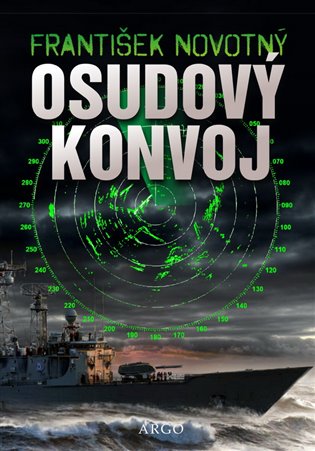František Novotný
František Novotný (b. 1944) is a science-fiction writer, computer technician, model maker and yachtsman. In addition to sci-fi, he also writes factual literature. The start of his literary career is connected to a group of sci-fi writers that was set up in the mid-1980s around the Karel Čapek Award, which heralded a new era in the development of Czech sci-fi. As the first winner of the award, František Novotný’s debut work was published in 1988. He is also the author of the grand saga Valhala, one of the most important texts in Czech fantastic literature, where the author links the world of two ancient northern mythologies with the two world wars from the last century.

The Convoy of Destiny
May 2018, 374 pages
Available material: English sample
A celebration of history, ships, naval battles, machines and love stories.
The story of yachtsman David Marek who has to sail from Boston to Europe on the Russian yacht Onega. While waiting for his companions he spends his free time visiting tourist sites. At one of them, he discovers a secret, the uncovering of which takes some time… It is 1946, the war is far from over and Great Britain can be saved from capitulation only by the HX 402 convoy which has been assembled in Halifax, Nova Scotia. From Boston it is accompanied by the SMS Jizera, a frigate from the Czech Squadron of the Danube Federation, with commander David Marek on board… The object of his attention, a certain lady-in-waiting, is to travel with him. Which of these David Mareks is the real one? The two interlinking plots in The Convoy of Destiny are divided by the perspective of the narrator.
“We find ourselves at sea amongst warships, and instead of the skipper David Marek, we suddenly find naval officer David Marek. Although the places remain the same, we are one hundred years back in time. And that is definitely not the only surprise which Novotný hides in the pages of his book. You would deserve a good thrashing, however, if you were to give anything else away.”
—Sarden
“František Novotný’s new novel is remarkable and quite unique in its own way due to the crucial role of motifs, which have been present in Novotný’s works ever since Valhalla: parallel worlds, the sea, Nazis, magic, secret societies, and the loneliness of human fate.”
—XB1